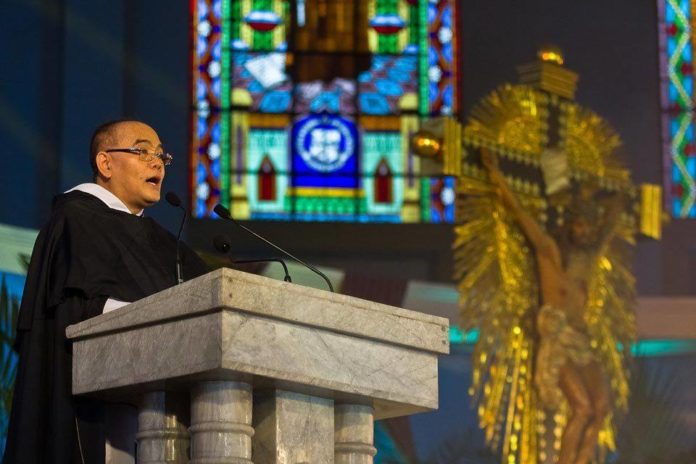(Rejoinder of Fr. Rolando V. de la Rosa, OP)
I was shocked to read the title of a news item published yesterday in the Varsitarian’s online edition: “Ex-UST Rector defends Alumni Award given to Mocha Uson.” Those who protested against the award were expectedly hyped. I instantly became the target of their rabid bashing.
To keep silent is a convenient option, but opinions have consequences, thus this rejoinder.
My article (“AWARDS ARE NOT REWARDS”), published in the Manila Bulletin on Jan. 28, hardly elicited such an angry response. This proves that the Varsitarian’s reading of what I have written was actually a MISREADING. It collides head on with the overall message of my article. It is one thing to say that I defend the prerogative of the UST Alumni Association, Inc. to confer an award on a person it chooses. It is an entirely different thing to say that I defend (or approve, as the Varsitarian’s article insinuates) the award itself and its recipient.
I am aware that the Varsitarian is against the giving of the award to Mocha Uson, so I am tempted to think that the “Online editor” is being cynical, intentionally misreading my article to incense those who have joined the bandwagon of protests against the award.
I myself was once a staffer of the Varsitarian. During my brief stint there, the publications adviser and the editor instilled in my mind that I could not pass myself off as a Thomasian writer or journalist without upholding objectivity and restraint.
For instance, when writing about an article written by another, I must consider the article as a whole piece of work. I have no right to selectively focus on a word, a phrase, or a paragraph just to bolster my own opinion about the article, neglecting thereby to consider the context in which it was written. This cut-and-paste attitude not only mutilates the article but unfairly deconstructs the original author’s intention and purpose. A journalist must not report his own opinion and pass it as news. More importantly, he should not do it at the expense of another person.
It is not only in war that truth is often a casualty. Even in the many processes and media of communication, this also happens. A paper that focuses inordinately on attracting readers rather than on informing them will soon become like a circus barker, waving and screaming to seduce clients who almost always are disappointed when they finally enter the tent.
The Varsitarian’s apparent proclivity to fuel controversy by editorializing news items and articles that it gets from various sources worries me. I dread the day when its staff would be trained as junior versions of tabloid journalists who dish out insinuations and intrigues for their readers to slurp up.
Understandably, even among student journalists, there are many pressures that bring standards down: the deadline, the need for scoops, etc. But as students, they must be guided and trained never to ignore the pressure exerted by integrity, justice, and fairness. It is the prime duty of the publications advisers to help these students in their struggle to choose truth over what will merely sell.













